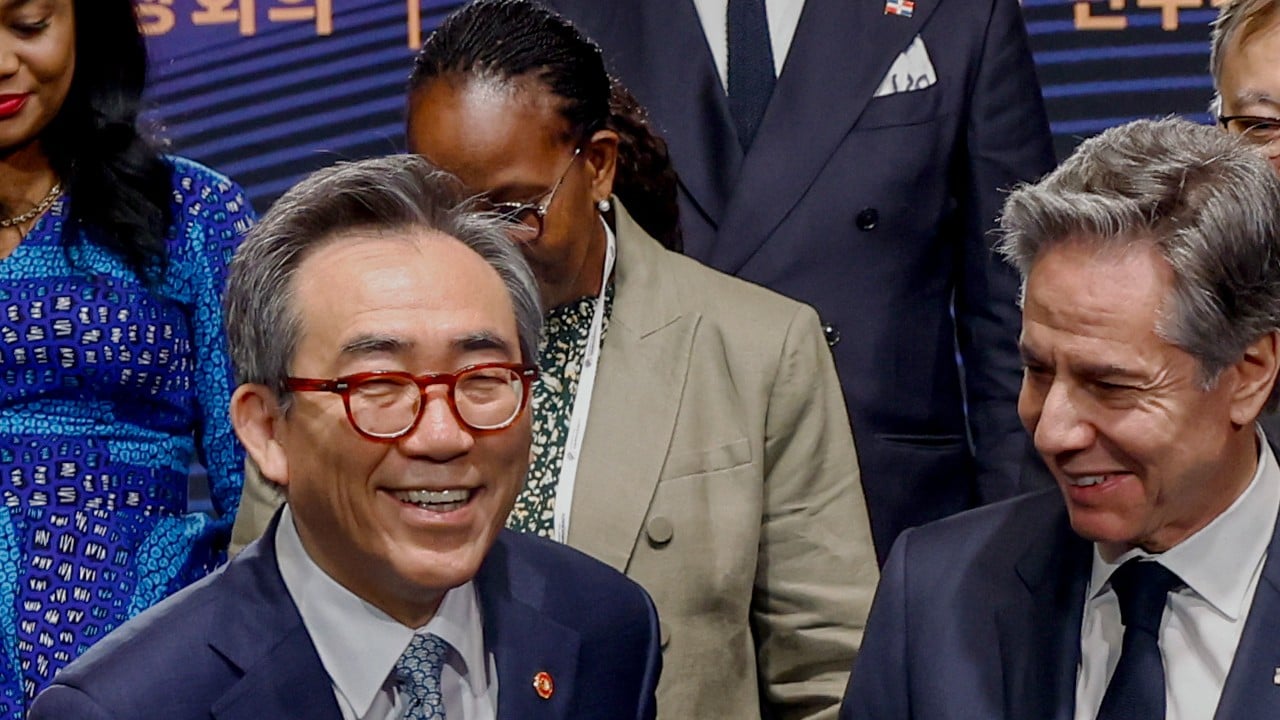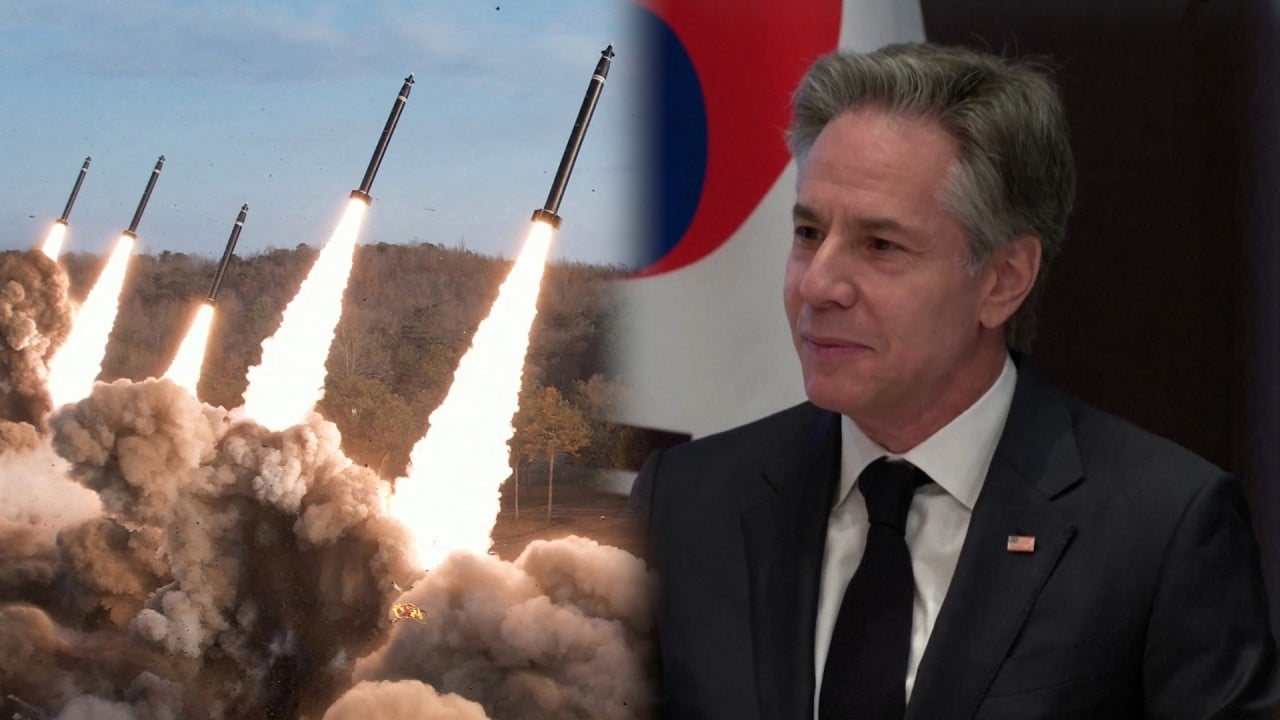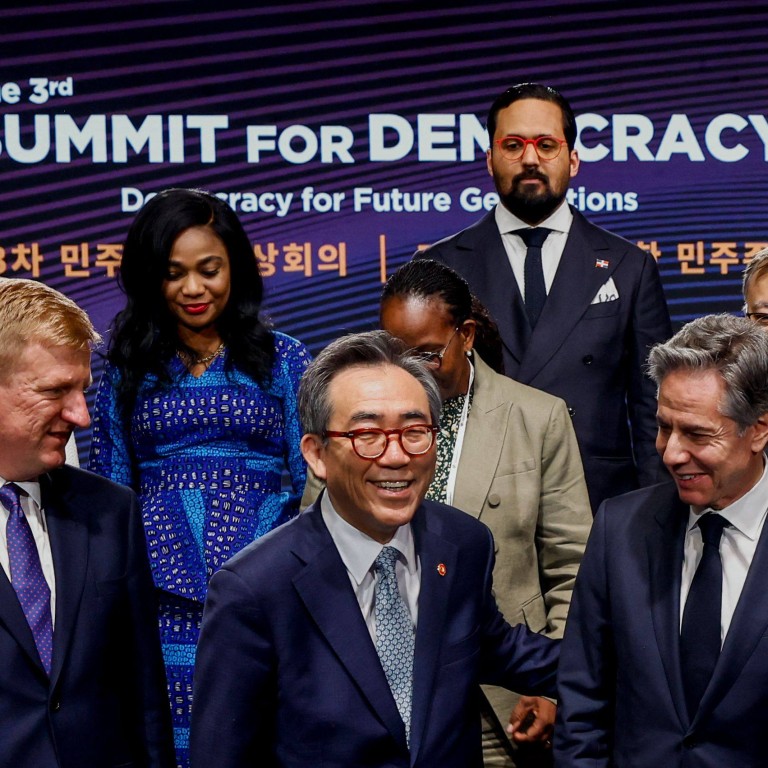
Why democracy summit may signal South Korea’s shift to harder stance on China
- The event included an address by a Taiwanese minister and follows moves by President Yoon Suk-yeol to strengthen ties with the US
- Seoul has been more vocal about Taiwan under Yoon, but observers say its close economic ties with Beijing will still be a reason for caution
The three-day event, which ended on Wednesday and was attended by representatives from more than 100 countries and regions, was the third of its kind and the first to be held outside the US since President Joe Biden launched the forum in 2021.
As in previous years, the event was addressed by a Taiwanese representative, while mainland China was excluded.
Diplomatic observers said that while Seoul would still be cautious regarding Taiwan because of its close economic ties with mainland China, the hosting of the summit and close alignment with the US in other areas could drive it further away from Beijing.
Kang Jun-young, a professor of Chinese studies at Hankuk University of Foreign Studies in Seoul, said: “Basically, South Korea is pursuing value-based diplomacy.
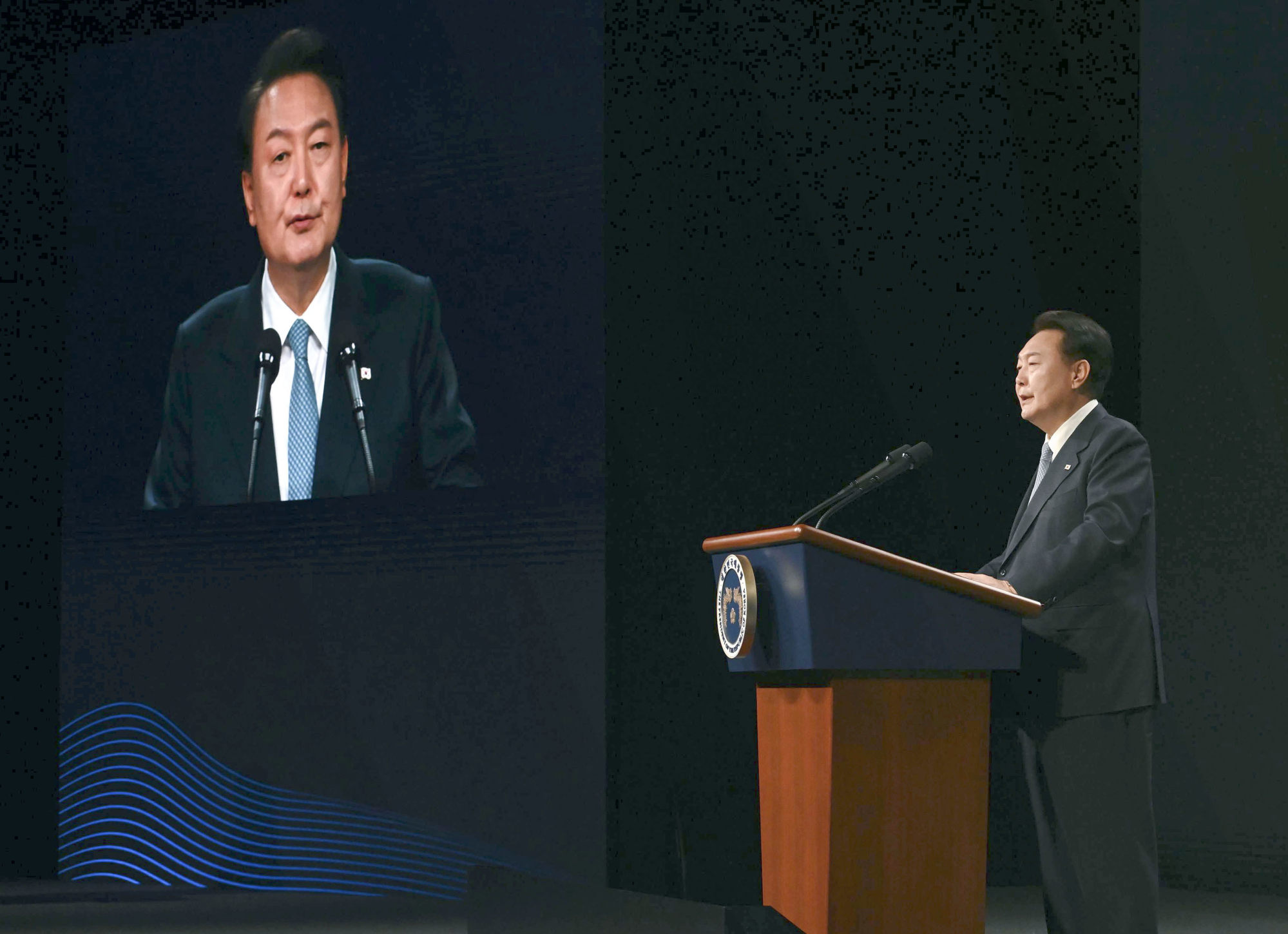
“The reason is that now that the Biden administration is pursuing a policy that emphasises and values alliances, and Korea is also a democratic and free-market economy country.
“As Seoul discusses democratic values, I think it differentiates itself from China with different systems and values. Of course … this means that Korea will establish itself as a country that respects the same values as Western countries, including the United States.”
Yoon has previously described the country’s relationship with the US as an “alliance of values” which, he added, “is even stronger because we share a belief in liberal democracy”.
This year’s event – which had the theme of “democracy for future generations” – included a pre-recorded video message from Taiwanese Minister of Digital Affairs Audrey Tang. It was played during a round-table discussion on artificial intelligence and emerging technology
Can a new South Korea-Japan agreement take bilateral ties to the next level?
Tang said that during the island’s elections in January, “bad actors in the pay of authoritarians pulled out all stops, coming close to poisoning [Taiwan’s] information climate and interfering in the outcome”, according to the Taiwanese digital affairs ministry.
Beijing regards Taiwan as part of China that must be reunited with the mainland – by force if necessary – and expressed its “firm opposition” to Taiwan’s presence at the event, saying “there is only one China in the world”.
“China has solemnly urged South Korea to abide by the one-China principle and stop providing a platform to Taiwan independence forces and making excuses for them,” foreign ministry spokesman Lin Jian said.
Most countries, including the US and South Korea, do not recognise Taiwan as an independent state, but oppose any attempt to take it by force.
In response to Beijing’s criticism, South Korean foreign ministry spokesman Lim Soo-suk said the Summit for Democracy was held to “contribute to the promotion of democracy and human rights”, and it was not aimed at any specific country.
Lim added: “There is no change in our government’s position of respecting one China.”
Andrew Yeo, a senior fellow and the SK-Korea Foundation chair of Korea studies at Washington-based think tank the Brookings Institution, said there was a “slow movement and recognition” within Seoul that Taiwan was becoming more of a global problem.
“We know that South Korea is not at the same place as other allies like Japan and Australia when it comes to concerns about a Taiwan contingency,” Yeo said.
“But we’ve seen the language shift, starting from the end of the Moon [Jae-in] government, and then with the Yoon government in terms of reinforcing this idea of maintaining peace and stability on the Taiwan Strait.
“I think Korea will, at least under the Yoon government, move in a direction that is more consistent with some other Western countries on the Taiwan issue, but probably not at the same pace or speed.”
US top official Blinken arrives in South Korea to attend democracy summit
Yeo said the summit was the Yoon administration’s attempt to present South Korea as a “global pivotal state”, and reinforce its alignment with US foreign policy.
“As we’ve seen, Yoon doubled down on this value-based diplomacy, global pivotal state argument, and because Taiwan is becoming more recognised as an international issue … it would look bad if the Yoon government completely ignored this issue,” Yeo said.
But Kang, from the Hankuk University of Foreign Studies, said that “from China’s perspective”, this shift “would be very difficult to understand”.
“So, for the time being, if Korea brings up value diplomacy or such things, it will inevitably be uncomfortable for China, and I don’t think that will be a positive factor in Korea-China relations in the short to medium term,” he said.
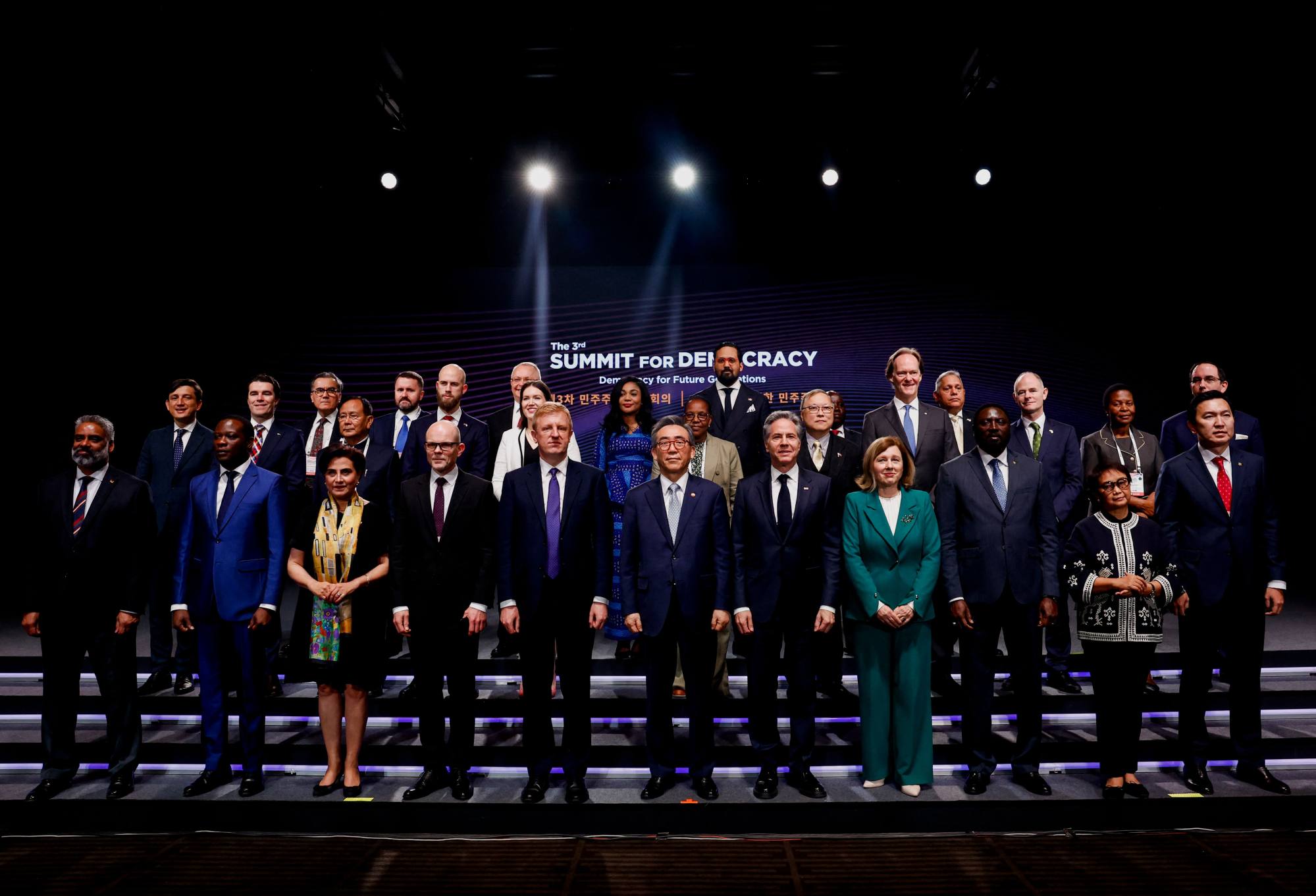
“I believe that quickly establishing communication between both sides on how to manage conflict will lead to the future development of both countries … so I hope that the two countries will put their heads together to create such a communication mechanism sooner.”
US Secretary of State Antony Blinken was among those attending the event, which he used to warn that “authoritarian and repressive regimes deploy technologies to undermine democracy and human rights”.
While he was in Seoul, he met his South Korean counterpart, Cho Tae-yul, and the pair reaffirmed their commitment to “protecting the rules-based international order” and “exchanged opinions on regional issues such as Ukraine, the Middle East, the South China Sea, and Taiwan,” according to the South Korean foreign ministry.


